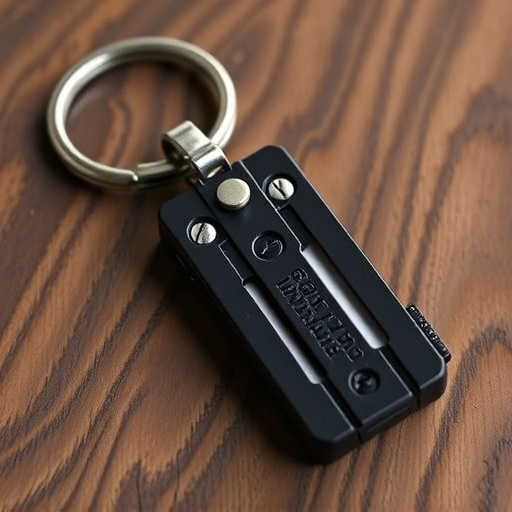Walking alone? Keychain alarms can boost security but understand state laws regarding noise restrictions and permit requirements for self-defense tools to avoid legal issues while staying safe. Research your state's guidelines on "keychain alarm for walking alone" before relying on it as a defense mechanism.
Navigating the legal landscape of self-defense can be challenging, especially when considering compact personal safety devices like keychain alarms. This guide delves into the defensive keychain legal carry guidelines across various states in the US, focusing on relevant laws and restrictions. From understanding state regulations to exploring the legality of carrying a keychain alarm for walking alone, this article equips you with essential knowledge to ensure compliance and peace of mind.
- Understanding State Laws on Personal Safety Devices
- Keychain Alarms: Legal Carry and Restrictions
- Walking Alone? Navigate Legalities for Self-Defense
Understanding State Laws on Personal Safety Devices
Personal safety is a top concern for many individuals, especially those who often walk alone or in areas with limited visibility. One simple yet effective tool that has gained popularity is the defensive keychain alarm. These small devices are designed to be easily carried and quickly activated when one feels threatened, emitting a loud noise to deter potential attackers.
When considering the legal aspects of carrying such personal safety devices, it’s essential to understand state-specific laws. Each U.S. state has its own regulations regarding what constitutes an acceptable self-defense tool and where it can be legally carried. For instance, some states explicitly allow defensive keychains as a form of personal protection, while others may have restrictions on noise levels or the type of alarm allowed. Before carrying a keychain alarm for walking alone, individuals should research their state’s specific guidelines to ensure compliance with local laws.
Keychain Alarms: Legal Carry and Restrictions
Carrying a keychain alarm while walking alone can be a powerful personal safety measure, but it’s crucial to understand the legal implications and restrictions in your state. These compact devices have gained popularity as a quick and easy way to deter potential attackers, especially for women who often find themselves alone in public spaces. However, the legality of carrying such self-defense tools varies significantly from state to state.
Before investing in a keychain alarm for walking alone, it’s essential to research and familiarize yourself with your area’s specific regulations. Some states may allow open carry of personal defense devices like alarms or pepper spray without a permit, while others have strict restrictions, mandating permits or registration. Make sure you know the local laws to avoid any legal complications and ensure your peace of mind is protected alongside your physical safety.
Walking Alone? Navigate Legalities for Self-Defense
When walking alone, especially in unfamiliar or potentially dangerous areas, it’s natural to feel vulnerable. Carrying a keychain alarm can offer a sense of security for self-defense, but navigating legalities is crucial. Understanding what constitutes reasonable force and when a keychain alarm falls within those bounds is essential.
In many states, laws regarding self-defense and carry permits vary widely. Some allow for the use of “personal protection devices,” including keychain alarms, while others have strict restrictions on the types of self-defense tools that are legal to carry. Before relying on a keychain alarm for walking alone, research your state’s specific guidelines regarding what constitutes legal self-defense and ensure you fully understand your rights and responsibilities.
When considering a keychain alarm for walking alone, it’s crucial to understand your state’s legal carry guidelines. While these devices can enhance personal safety, navigating the complexities of self-defense laws is essential. Remember that restrictions vary widely, so ensure you’re familiar with your local regulations before carrying any self-defense tool. By staying informed, you can protect yourself effectively while respecting legal boundaries.
